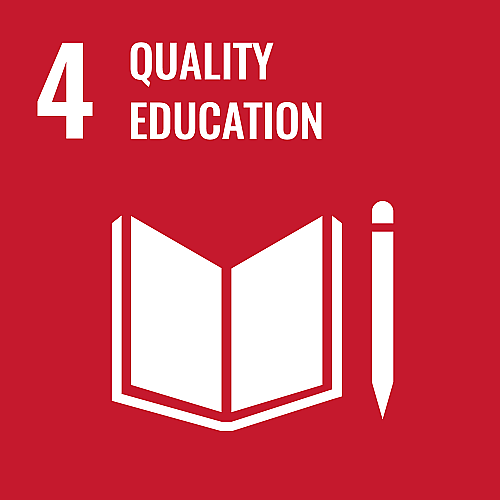Sustainability
MUBAS for Sustainable Development
Explore this section
SDG 4: Quality Education

Quality Education, aims to ensure inclusive, equitable, and lifelong education for all. It focuses on providing free primary and secondary education, improving access to early childhood and vocational training, eliminating disparities, and promoting skills for sustainable development so everyone can reach their full potential.
Indicators
4.2.1 Number of graduates.
In the 2023/2024 academic year, the university conferred degrees and diplomas on 1,707 graduates. This notable cohort marks a milestone in the institution’s output of qualified personnel.
Number of graduates
4.2.2 Number of graduates who gained a qualification that entitled them to teach at Primary school level.
Out of the total graduates, 260 individuals obtained qualifications that enable them to teach. This demonstrates the university’s role in strengthening the education sector by preparing competent educators equipped to support foundational learning and improve primary education outcomes.
Graduates with Teaching Qualification
4.3.1 Public resources - Free access to educational resources.
MUBAS champions inclusive education by actively extending its knowledge ecosystem to the wider community through a structured, subsidized membership scheme. This initiative provides external members with affordable access to the university's library services, innovation hubs, and research facilities for a nominal fee, deliberately designed to sustain the services without creating a financial barrier.
University Support for Community Education
4.3.2 Public events hosted by university.
The University regularly hosts public lectures and open community events. These events serve as platforms for dialogue and the dissemination of knowledge on national development, sustainability, and innovation, ensuring that education is not confined to campus walls.
Public Events and Community Engagement
4.3.3 Vocational training/executive education programmes.
MUBAS offers short-course programmes through its Business Incubation Centre that are open to the general public, not limited to enrolled degree students. These programmes include trade-skills courses such as food processing, tailoring & designing, wood-work, metal‐work, audio‐visual media production, electrical installation & maintenance, briquettes making and business foundations, each typically lasting three months and advertised for general public application.The Business Incubation Centre provides short executive and vocational courses that empower entrepreneurs and professionals with practical business and innovation skills.
Vocational Training for the Public
4.3.4 Education outreach activities beyond campus.
MUBAS actively participates in educational outreach programs in schools and communities. Through outreach initiatives, MUBAS staff and students visit schools and communities to inspire and guide learners on academic and career pathways.
University Outreach Programs
4.3.5 Policies ensuring inclusivity in lifelong learning.
The MUBAS Strategic Plan ensures inclusivity and non-discrimination, guaranteeing equal access to educational opportunities regardless of gender, religion, disability, or ethnicity. The University lives by this commitment by ensuring that its events, short courses, and programs are accessible to all segments of society
Inclusive Education and Engagement
4.4.1 Number of students starting a degree
During the reporting period, a total of 2,501 new students enrolled to begin degree programmes at the university. This intake reflects the institution’s capacity to attract and admit a diverse group of learners pursuing higher education across various academic disciplines
Students starting a degree
4.4.2 Number of first-generation students starting a degree
A total of 1,698 first-generation students began degree programmes at the university during the reporting period. These students are the first in their families to pursue higher education, reflecting the university’s commitment to widening access and supporting educational advancement for communities historically under-represented in tertiary education.
First Generation Students
